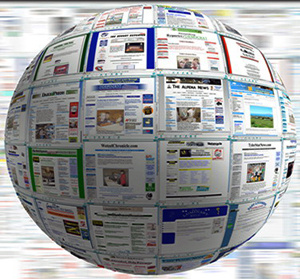No progress evident in Iran nuclear talks

LA Times--Western officials portrayed the Geneva meetings as a test of whether Tehran would consider limits on its atomic research. Iran agrees to meet again but rebuffs a U.S. invitation to bilateral talks.
A long-awaited meeting with Iran on its disputed nuclear program ended without visible progress on Tuesday, dealing a stinging setback to the Obama administration’s strategy built on patient diplomacy and tough economic sanctions.
U.S. and European officials had portrayed the two days of meetings as a test of whether the Islamic Republic would consider limits on an atomic research program that many nations fear is aimed at developing a nuclear weapon.
Iran agreed to meet again next month in Istanbul, Turkey, but showed no interest in curbing its nuclear research — and it rebuffed a U.S. invitation to a formal bilateral meeting with American officials.
After what one senior diplomat, characterizing the talks Monday and Tuesday, called "very difficult discussions," Tehran’s chief delegate, Saeed Jalili, announced that Iran wouldn’t even discuss halting uranium enrichment at the upcoming Istanbul gathering.
The Geneva meetings appeared to have yielded less than the last time Iran and the six involved world powers met, in October 2009, when Iran and the other participants worked out an agreement that would have limited Tehran’s access to its enriched uranium in exchange for help with fuel for a medical reactor. That deal fell apart within weeks.Continued…
Little progress seen as talks with Iran come to end
Washington Post-- When two days of talks between Iran and major powers ended here Tuesday, with few signs of progress except an agreement to meet again next month in Istanbul, the dueling news conferences by both sides laid bare the difficulties ahead.
There was no public agreement on what was discussed in the past - or even what will be covered in the future.
European Union foreign policy chief Catherine Ashton, representing the major powers, spoke for only a minute and took no questions. She said that the talks this week were "detailed, substantive" and that the discussions in January will cover "practical ideas and ways of cooperating toward a resolution of our core concerns about the nuclear issue."
By contrast, Saeed Jalili, Iran’s envoy to the talks, spoke to reporters for 80 minutes, standing before a photograph of an Iranian nuclear scientist who was recently killed. He began with a lengthy description of why the world needs Iran’s capabilities to prosper. "Today, more than ever, Iran is powerful," he said of a country under vast international sanctions. "It is in the best economic, political, regional and international shape." Continued…
Quit UAE isles, GCC tells Iran
Khaleej Times--The GCC on Tuesday reiterated unwavering support to the UAE’s sovereignty over its three islands of the Greater and Lesser Tunbs and Abu Mousa which are occupied by Iran.
In a communiqué issued at the end of their 31st summit, the GCC leaders threw their weight behind the UAE’s right to regain sovereignty over its three islands and over the territorial waters, the airspace, the continental shelf, and the economic zone of the three islands, as they are an integral part of the United Arab Emirates.
The President, His Highness Shaikh Khalifa bin Zayed Al Nahyan, who chaired the two-day meeting, declared the GCC summit concluded.
The leaders expressed their disappointment that repeated contacts with the Islamic Republic of Iran have not produced any positive outcome that would contribute to the resolution of the issue, and maintain the security and stability of the region. Continued..

